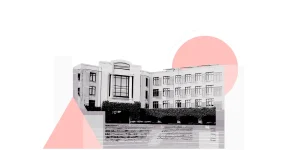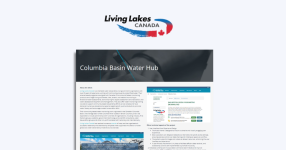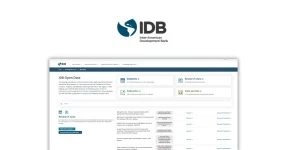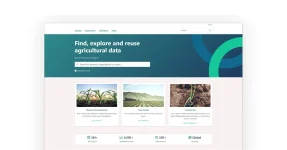The 2023 Open Government Partnership (OGP) Summit in Tallinn, Estonia, takes place at a time of both very real opportunities and serious threats to open government and the many civil society participants engaged with the OGP to support it.
As the OGP Co-Chair Agenda, written by the host government and civil society activist Anabel Cruz, notes, the global situation now is radically different to that in which OGP was founded in 2011. There are new threats: deliberate and systematic large-scale disinformation spread by malicious actors; a global lurch towards authoritarian styles of government; and a declining security situation, the war in Ukraine being the foremost of many examples.
The world is also growing more polarised and distrustful. As the Australian communication firm Edelman states in its Trust Barometer 2023, a survey involving over 32,000 respondents in 28 countries, a ‘lack of faith in societal institutions triggered by economic anxiety, disinformation, mass-class divide and a failure of leadership has brought us to where we are today – deeply and dangerously polarised.’ While not all countries are experiencing this to the same extent, to a greater or lesser degree most are bound up in a ‘cycle of mistrust’ that is particularly targeted at government and media, now viewed by many as sources of unreliable information. This makes it difficult to act with the political unity we need to tackle the major global problems facing us, such as climate change or poverty.
The opportunities, symbolised by gatherings such as Tallinn, include the growth and progress being made by the OGP and the potential of technology to strengthen democracy and make governance and policy-making more transparent and accountable.
One question that needs to be asked at Tallinn, however, is whether governments are making the most of the potential offered by data and digital to make open governance a reality. New forms of digital technology undoubtedly give governments the ability to collect more data on their citizens, which can be used to improve policy and service provision. But how can governments also use data and digital to engender greater civic participation and increase trust in government and its institutions? And what tools are available to help them do this?
This is an issue that global digital services provider Link Digital is keen to explore in a day long side event it is sponsoring at the Tallinn gathering. This will bring Open Knowledge Estonia and Open Knowledge Finland together with open knowledge experts and practitioners from around the world to discuss the future of government transparency, the role of civil society in helping to achieve it, and the digital technology solutions available to maximise the possibilities of the OGP and its support of open government.
The rise of data as a key currency of the 21st century, a trend driven by the digitisation of nearly all key facets of life, has had numerous impacts. One of these is a reconfiguration of how many governments understand their data and digital operations and, parallel with this, the growth of citizens accessing more government information and services digitally. Particularly spurred on by the response to the COVID-19 pandemic, data sharing within and between governments and between governments and the public is increasingly seen as positive in the context of developing and improving government services.
While there are several ways in which this sharing is happening, the main form is through open data portals. These are front-line interfaces that bridge data providers and users, helping to ensure that data is not just accessible but usable. In the context of Australia, where Link Digital is based, open data portals have been accompanied by a range of other reforms focused on improved data asset discovery, a ‘digital by design’ approach to deliver policies and services for people and business, and regulation of data sharing and developing public service capabilities.
The governments that will be attending Tallinn are doing so because they want to do better in terms of open government and protect or expand the space for local and national civil society actors to be involved. All of them, however, are at different stages of this effort and many face a range of challenges in terms of realising this project: resourcing, constraints relating to political culture, institutional or bureaucratic issues, historical factors, or external challenges.
The key issue for the Tallinn summit is how to translate the goodwill and commitments made by governments in national and local plans into concrete action on the ground. The possibilities of data sharing within and between governments and between governments and the public is a crucial part of this. Data sharing can break down silos within government and, crucially, empower governments and their citizens with digital service provision from a common and trusted source.
But not all OGP participants are resourced to take advantage of this evolving digital ecosystem, and the opportunities for data sharing presented by it. The Tallinn summit needs to discuss how to help those governments, while encouraging those who are engaged in data sharing to align their policies in such a way that these activities can be used to put power in the hands of citizens and, in doing so, improve transparency, accountability and civic participation. As the OGP itself states in its 2023-2028 Strategy, ‘when civil society is involved in designing and implementing OGP action plans, commitments are more ambitious, are better implemented, produce more changes in government practices, and result in better outcomes for people.’
Link Digital contends that a deeper engagement between governments and the open source software community, especially in relation to Comprehensive Knowledge Archive Network (CKAN), presents one opportunity to deliver on improved OGP commitments.
Comprehensive Knowledge Archive Network: A vital open data sharing tool
Launched in 2006, CKAN is a piece of open-source software that can be configured and set up to function as a data platform. CKAN is based on the principle that open data is a public good that should be non-right restricted and easily transferable, a process that creates more value the further data is shared. ‘ is also non-commercial, which allows the project to maintain its direction without being swayed by external financial interests.
This makes CKAN a powerful tool for increasing government efficiency by making data more discoverable to independent analysis in ways that go far beyond the original purpose for which it was collected. Open data can help government institutions within a country exchange data faster and more efficiently. Instead of going through the complex bureaucratic internal process of requesting data from another institution within the country, openly published data can be accessed immediately saving time and taxpayers money. Corporates can use CKAN to register and manage internal data assets. Non-government organisations can use it as a free and open source tool to publish operational data and broaden their user communities. And the scientific community can utilise it to enable public data repositories in areas of active research.
There are many ways to measure CKAN’s impact. One is obviously usage. Put very simply, if software is being used it means it is needed and people find value in it. In the context of the deliberations taking place at Tallinn, and the need for greater collaboration between governments and civil society, CKAN’s growing role in the digital ecosystem is evidenced by the fact that it serves as the key component of some of the largest and most successful open data portals around the world. Recent research was undertaken on a set of nearly 400 regularly updated CKAN data portals of different sizes in 59 countries. These are spread across six major continents, with Brazil and the United States having the largest prevalence, followed by Argentina, Australia, Canada, Germany, the UK, Spain, Italy, and Japan. They include the European Union’s Open Data Portal, the United States Open Data Portal, the United Kingdom’s National Health Service, and Open Africa, the largest repository of data on the African continent.
Another indicator of CKAN’s real world impact is that the platform was recently awarded the status of being a Digital Public Good (DPG) by the Digital Public Goods Alliance. This was a recognition of CKAN’s value as a driver of positive change in helping to attain many of the Sustainable Development Goals put forward by United Nations (UN), themselves a key OGP partner. CKAN is currently used by many multilateral organisations like the UN Refugee Agency, the United Nations Office for the Coordination of Humanitarian Affairs, World Food Program and the Food and Agriculture Organisation. CKAN’s recognition as a DPG is also associated with its use by philanthropic organisations and by grassroots civil society movements like Code For Africa, Civic Data Lab and Digital Fems.
The open source software community: amplifying open government principles
Data management platforms, based on open source technology such as CKAN, have the potential to provide real world benefits over the long term as digital public infrastructure. They are a viable, low risk and long term investment for government and civil society organisations, something that is not common in the dynamic world of technology. And they provide a tangible way for civil society to keep governments open and ensure they are accountable for the decisions they make.
There is a core development team that contributes to keep the CKAN software in good shape. This is work that essentially never stops, meaning that CKAN is on a continuous improvement journey, with each successive iteration of the software looking at improving its efficiency, performance, stability, interaction, and usability. Link Digital is what is referred to as a co-steward for CKAN and serves to help coordinate CKAN related activities that maintain the project’s direction and momentum. This role includes assisting with research in the lead-up to the release of the next version of CKAN – CKAN 3.0. This work involves consultation with users and operators in the CKAN community to gather feedback on how to improve the technical aspects of the platform, as well as how it can better meet the needs of its diverse and geographically spread out community and improve CKAN’s effectiveness as an open data platform.
The movement around CKAN comprises an expanding installation base of users and contributors, including individuals from the private and community sectors, academia and government. Link Digital would encourage the OGP and its government members to view this network as an active civil society group that can amplify OGP’s aims and principles and promote greater government transparency and accountability.
Parallel with their increasing use of data, many governments are generating a need for skills and competencies in the data and digital space and introspecting organisational improvements to meet challenges. While this is important, a purely top down version of data and digital governance misses out on the benefits that can be accrued from adopting a more collaborative approach that fully engages a much broader range of stakeholders, among them civil society. This includes the fluency that comes with new forms of working and collaborating on data. A closer engagement with groups such as the open source community around CKAN can strengthen government by enabling it to engage with data and digital initiatives that defy traditional boundaries between government and civil society. Direct benefits from this will directly flow back to the governments and their public servants in the form of exposure to new talent, and new skills, ideas and partnerships.
Link Digital would argue that in addition to energising government and building new relationships and ways of working, such a strategy points a way forward for how governments can use their data and digital transformation to help counter the broader societal threat posed to democracy by disinformation and rebuild public trust in the institutions of government. While the advantages of the data and digital transformation sweeping much of the world may be obvious to those attending the OGP Summit, it is important to bear in mind that the benefits are arguably far less clear to many in our communities. Open data and data sharing have created new opportunities in terms of keeping governments accountable and improving policy outcomes, but government held data has also engendered mistrust by exposing people to major risks related to data privacy, consent, surveillance and identity theft.
Broader government engagement with platforms such as CKAN and the collaborative community around it, can not only provide governments with powerful technological tools for delivering open data and digital initiatives. It will help them to develop a stronger values framework that embeds data and digital initiatives much more firmly as part of a mission to improve trust in government and inoculate public institutions from the threat of disinformation.
You can learn more about the OGP Summit, the CKAN project and please do reach out to us at Link Digital to discover how you can leverage CKAN and other open source technologies for your own data and digital initiatives.



